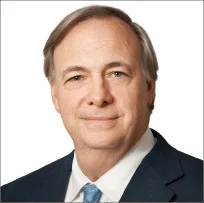Additional excerpts from Ray Dalio’s Principles. By presenting thoughts along similar veins by other investors, I do not wish to imply that Dalio’s thoughts are unoriginal. Instead, I am merely attempting to highlight psychological and behavioral commonalities between these investors. Random coincidence that these overlaps exist? Perhaps. But it’s much more fun to contemplate other contributing possibilities. Psychology, Process Over Outcome
“It isn't easy for me to be confident that my opinions are right. In the markets, you can do a huge amount of work and still be wrong. Bad opinions can be very costly. Most people come up with opinions and there’s no cost to them. Not so in the market. This is why I have learned to be cautious. No matter how hard I work, I really can’t be sure. The consensus is often wrong, so I have to be an independent thinker. To make any money, you have to be right when they’re wrong.”
Successful investing often requires the ability to straddle a very thin line between humility (“I could be wrong”) and hubris (“I am right, they are wrong”) – seemingly paradoxical dispositions. Howard Marks dedicated a whole chapter to this concept titled “Knowing What You Don’t Know.”
“I stress-tested my opinions by having the smartest people I could find challenge them so I could find out where I was wrong. I never cared much about others’ conclusions—only for the reasoning that led to these conclusions. That reasoning had to make sense to me. Through this process, I improved my chances of being right, and I learned a lot from a lot of great people. I remained wary about being overconfident, and I figured out how to effectively deal with my not knowing. I dealt with my not knowing by either continuing to gather information until I reached the point that I could be confident or by eliminating my exposure to the risks of not knowing. I wrestled with my realities, reflected on the consequences of my decisions, and learned and improved from this process.”
Asking others to torpedo your thesis and listening to their reasons helps avoid confirmation bias (seeking and retaining only information/facts that support your thesis while ignoring anything to the contrary). An example of this implementation in its extreme: as of 2010, Bruce Berkowitz of Fairholme didn’t employ analysts, and instead hired external experts to challenge his ideas and theses.
When To Buy
“I don’t make an inadvertent bet. I try to limit my bets to the limited number of things I am confident in.”
Charlie Munger once said the following: “…the one thing that all those winning betters in the whole history of people who’ve beaten the pari-mutuel system have is quite simple: they bet very seldom… the wise ones bet heavily when the world offers them that opportunity. They bet big when they have the odds. And the rest of the time, they don’t. It’s just that simple.” Yes, he’s talking about horseracing, but same rules also apply to investing.


